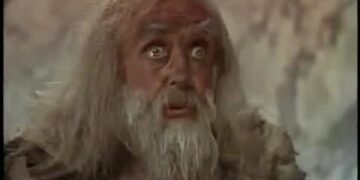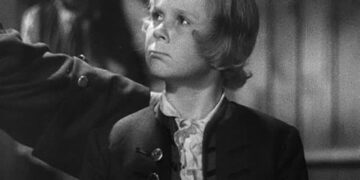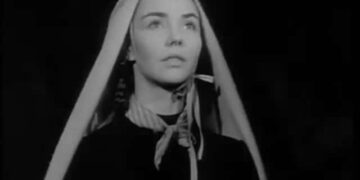“King Leopold’s Ghost” is a gripping historical narrative that takes readers on a journey through one of the darkest chapters in human history. Written by Adam Hochschild, this book provides a comprehensive account of the colonization of the Congo Free State by King Leopold II of Belgium during the late 19th and early 20th centuries.
In this article, we will delve into the captivating storyline of “King Leopold’s Ghost,” explore the key characters, analyze the historical context, and discuss the impact of King Leopold II. So, strap yourself in as we embark on this thought-provoking adventure.
Overview of the book’s storyline
“King Leopold’s Ghost” tells the harrowing tale of King Leopold II’s exploitation and brutalization of the Congolese people. The book begins by providing a historical background on King Leopold II and his desire to establish a colony in Africa.
Hochschild then delves into the intricate web of greed, violence, and deception that characterized Leopold’s reign in the Congo. Through meticulous research and compelling storytelling, Hochschild unravels the atrocities committed by Leopold’s agents, such as the forced labor system, rubber slavery, and the widespread violence inflicted upon the Congolese population. The book also sheds light on the brave individuals who fought against these injustices, including Roger Casement and Edmund Dene Morel.
Key characters in “King Leopold’s Ghost”
“King Leopold’s Ghost” introduces readers to a myriad of fascinating and influential characters. One of the central figures is King Leopold II himself, a cunning and power-hungry ruler who used the guise of humanitarianism to conceal his true intentions in the Congo. Another key character is Edmund Dene Morel, a British shipping agent who played a crucial role in exposing the atrocities committed by Leopold’s regime.
Roger Casement, an Irish diplomat and human rights activist, also features prominently in the book. Casement’s tireless efforts to shed light on the horrors of the Congo helped galvanize public opinion and bring about change. Additionally, Hochschild explores the lives of various Congolese individuals who endured immense suffering under Leopold’s regime, giving voice to their experiences and resilience.
Exploring the historical context of the book
To fully comprehend the significance of “King Leopold’s Ghost,” it is essential to understand the historical context in which the events of the book unfold. The late 19th century witnessed a scramble for Africa among European powers, as they sought to exploit the continent’s vast resources and establish colonies. King Leopold II of Belgium, driven by his desire for power and wealth, managed to secure the Congo Free State as his personal colony.
Under the pretense of philanthropy and development, Leopold embarked on a relentless pursuit of rubber and ivory, subjecting the Congolese people to unimaginable suffering. Hochschild’s book provides a comprehensive exploration of this historical context, shedding light on the broader dynamics of European colonialism and imperialism.
Understanding the impact of King Leopold II
The impact of King Leopold II’s actions in the Congo cannot be overstated. “King Leopold’s Ghost” reveals the extent of the atrocities committed under his regime, which resulted in the deaths of millions of Congolese people.
The forced labor system, rampant violence, and ruthless exploitation of natural resources left a devastating legacy that continues to affect the region to this day. The book also highlights the international outrage and activism that emerged in response to Leopold’s actions, leading to the eventual annexation of the Congo by the Belgian government. Through its meticulous research and powerful narrative, “King Leopold’s Ghost” ensures that this dark chapter in history is not forgotten and serves as a reminder of the devastating consequences of unchecked power.
Analyzing the themes and messages of the book
“King Leopold’s Ghost” explores a range of themes and messages that resonate with readers. One of the central themes is the abuse of power and the corrupting influence it can have on individuals and institutions.
Hochschild also delves into the importance of human rights, exposing the hypocrisy of those who claim to be champions of progress while perpetrating unimaginable atrocities. The book serves as a call to action, urging readers to confront the dark chapters of history and work towards justice and accountability. Through its powerful storytelling, “King Leopold’s Ghost” compels readers to reflect on the consequences of unchecked greed and the importance of standing up against injustice.
Quotes that highlight the book’s powerful narrative
“King Leopold’s Ghost” is replete with poignant and thought-provoking quotes that capture the essence of its powerful narrative.
One such quote is, “The record of human history is thousands of years of exploitation and subjugation, punctuated by brief moments of enlightenment.” This quote serves as a reminder of the cyclical nature of human behavior and the importance of learning from our past.
Another impactful quote is, “The more powerful the exploiter, the greater the effort to portray him as the friend and benefactor of the exploited.” This quote exposes the manipulative tactics employed by those in power to perpetuate their control over others.
Hochschild’s skillful use of language and compelling quotes contribute to the book’s overall impact and make it a must-read for history enthusiasts.
The soundtrack by Pieter Daniel that complements the story
The soundtrack accompanying the book “King Leopold’s Ghost,” composed by Pieter Daniel, beautifully complements the story’s emotional depth and intensity. Daniel’s evocative compositions transport readers to the heart of the Congo, immersing them in the atmosphere and emotions depicted in the book.
The soundtrack seamlessly blends traditional African rhythms with haunting melodies, creating a rich auditory experience that enhances the reader’s engagement with the narrative. Whether reading the book or reflecting on its themes, the soundtrack by Pieter Daniel serves as a powerful accompaniment that further immerses readers in the world of “King Leopold’s Ghost.”
Curiosities and interesting facts about “King Leopold’s Ghost
“King Leopold’s Ghost” is filled with intriguing curiosities and interesting facts that add depth to the narrative. One curiosity is the book’s connection to the documentary film of the same name, directed by Pippa Scott and Oreet Rees.
The film offers a visual exploration of the events depicted in the book, further enriching the reader’s understanding of the Congo Free State. Additionally, the book provides a parent guide to navigating the sensitive themes and content within its pages, ensuring that readers approach the material in an informed manner. These curiosities and interesting facts contribute to the comprehensive experience of engaging with “King Leopold’s Ghost” and provide avenues for further exploration.
Tips for cosplay and dressing up as the book’s characters
For fans of “King Leopold’s Ghost” who wish to immerse themselves further in the narrative, cosplay and dressing up as the book’s characters can be a fun and engaging way to connect with the story.
To cosplay as King Leopold II, consider wearing a tailored suit with regal accents and incorporating symbolic props, such as a miniature rubber tree or ivory tusks.
For those interested in cosplaying as Edmund Dene Morel, opt for a period-appropriate suit and accessories, such as a shipping manifest or a camera to symbolize his investigative work.
Cosplaying as Roger Casement could involve a traditional Irish outfit paired with a sash emblazoned with the Congo State flag.
These tips for cosplay provide fans with an opportunity to embody their favorite characters and express their admiration for “King Leopold’s Ghost.”
Adam Hochschild: A look into the author’s bio and other works
Adam Hochschild, the author of “King Leopold’s Ghost,” is an esteemed writer and journalist known for his powerful works of historical non-fiction.
Born in New York City, Hochschild graduated from Harvard University and went on to co-found Mother Jones magazine. In addition to “King Leopold’s Ghost,” Hochschild has authored several other critically acclaimed books, including “Bury the Chains” and “To End All Wars.”
His writing has received numerous awards and accolades, and he is widely regarded as a leading voice in the genre of historical narrative. Hochschild’s extensive research and captivating storytelling make him a trusted authority on the subjects he tackles, ensuring that his works resonate with readers and stimulate important conversations.
Explaining the ending of “King Leopold’s Ghost”
The ending of “King Leopold’s Ghost” marks a turning point in the narrative, as the international community becomes increasingly aware of the atrocities committed in the Congo Free State. Hochschild details the growing outrage and activism that led to Leopold’s loss of control over the colony.
The book concludes with the annexation of the Congo by the Belgian government, a pivotal moment that signaled the beginning of the end for Leopold’s reign of terror. However, Hochschild also acknowledges that the legacy of Leopold’s atrocities persists, and the Congolese people continue to grapple with the consequences of this dark chapter in history. The ending of “King Leopold’s Ghost” serves as a reminder of the enduring impact of colonialism and the importance of never forgetting the past.
Potential remake, sequel, or spin-off possibilities
The profound impact of “King Leopold’s Ghost” opens up the possibility for future adaptations, including a potential remake, sequel, or spin-off. A remake of the book into a film or television series could bring the story to a wider audience and reignite discussions about the history of colonialism.
A sequel could explore the aftermath of Leopold’s reign and delve into the challenges faced by the Congolese people in the post-colonial era. Alternatively, a spin-off could focus on the lives of specific characters, providing further depth and insight into their experiences. These possibilities offer exciting avenues for extending the reach and impact of “King Leopold’s Ghost” beyond the written word.
Other media related to “King Leopold’s Ghost” by Pippa Scott and Oreet Rees
In addition to the book, “King Leopold’s Ghost” has been adapted into a documentary film directed by Pippa Scott and Oreet Rees. The film offers a visual exploration of the events depicted in the book, featuring interviews with historians, scholars, and individuals with personal connections to the Congo Free State.
This documentary provides a compelling companion to the book, offering a multi-dimensional understanding of the historical context and impact of King Leopold II’s reign. By engaging with both the book and the film, readers can gain a comprehensive perspective on the story of “King Leopold’s Ghost” and its enduring significance in contemporary society.
Similar works to “King Leopold’s Ghost” for further reading or viewing
For readers who are captivated by the themes and narrative style of “King Leopold’s Ghost,” there are several other works that offer further exploration of similar subjects. “Bury the Chains” by Adam Hochschild delves into the history of the British abolitionist movement and its impact on ending the transatlantic slave trade.
Another recommended book is “The Scramble for Africa” by Thomas Pakenham, which provides an in-depth examination of the colonial conquest of Africa by European powers. For viewers interested in documentaries, “The Congo: White King, Red Rubber, Black Death” by Peter Bate offers a compelling visual exploration of King Leopold II’s reign in the Congo.
These works serve as valuable companions to “King Leopold’s Ghost” and provide additional avenues for understanding the historical context and impact of European colonialism in Africa.
Book club discussion questions for “King Leopold’s Ghost”
“King Leopold’s Ghost” is an excellent choice for book club discussions, as it raises important questions about power, exploitation, and the legacy of colonialism. Here are some thought-provoking discussion questions to consider:
- How does “King Leopold’s Ghost” challenge our understanding of history and the motivations of those in power?
- In what ways does Adam Hochschild’s narrative style contribute to the emotional impact of the book?
- Discuss the role of activism and public opinion in bringing about change in the Congo Free State.
- How does “King Leopold’s Ghost” resonate with contemporary issues of exploitation and human rights abuses?
- Consider the ethical dilemmas faced by individuals like Edmund Dene Morel and Roger Casement. How would you have responded in their situations?
- Reflect on the lasting impact of King Leopold II’s reign in the Congo and the challenges faced by the Congolese people in the aftermath.
- How does the book challenge traditional narratives of colonialism and provide a more nuanced understanding of historical events?
These discussion questions are designed to promote thoughtful conversations and encourage readers to critically engage with the themes and messages of “King Leopold’s Ghost.”
A travel guide to visit locations related to “King Leopold’s Ghost”
For readers who wish to further immerse themselves in the world of “King Leopold’s Ghost,” a travel guide to locations related to the book can provide a unique and enriching experience.
The Congo Free State, now known as the Democratic Republic of the Congo, offers opportunities to explore sites that played a significant role in the events depicted in the book.
Visit the city of Kinshasa, the former capital of the Congo Free State, and discover its historical landmarks and museums. Journey to the heart of the rainforest and witness the natural beauty that was both exploited and preserved during Leopold’s reign.
Engaging with these locations allows readers to forge a deeper connection with the story and gain a firsthand perspective on the historical context of “King Leopold’s Ghost.”
Conclusion
“King Leopold’s Ghost” is a masterful work of historical non-fiction that exposes the brutal realities of colonialism and the devastating consequences of unbridled power. Through its captivating storyline, compelling characters, and thought-provoking themes, the book leaves an indelible impact on readers. Whether delving into the historical context, analyzing the impact of King Leopold II, or exploring the curiosities and interesting facts surrounding the book













